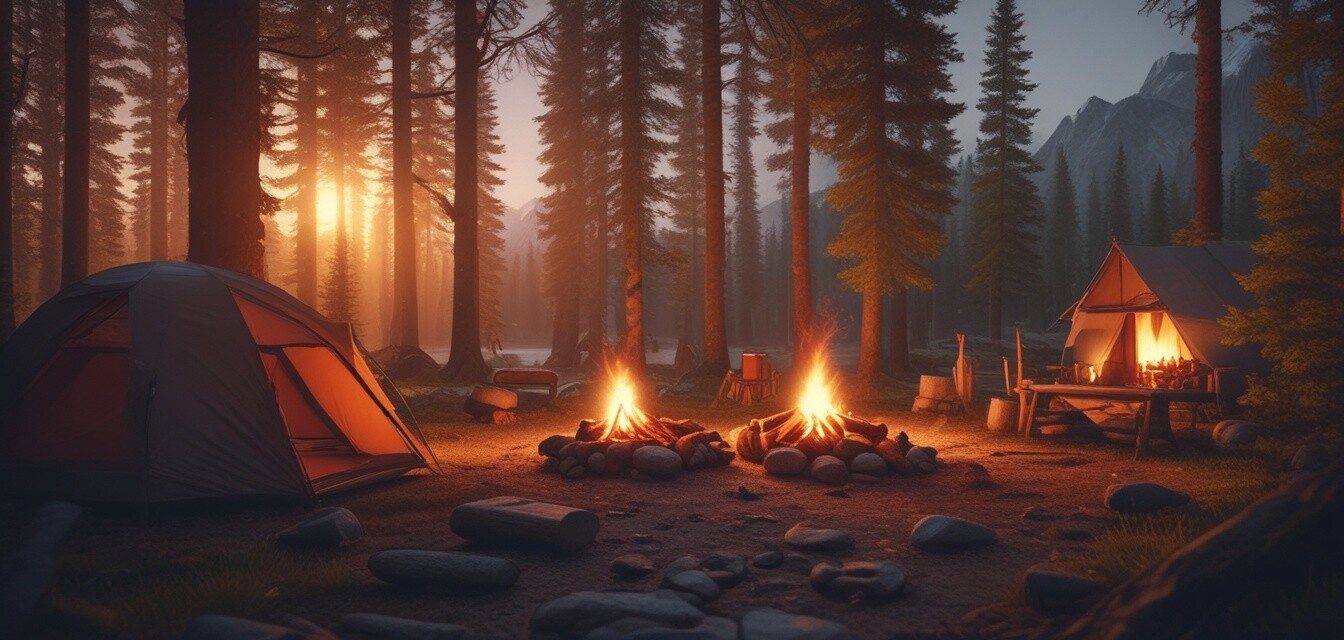
Choosing the Right Fire Starter for Camping
Key Takeaways
- Fire starters come in various types including matches, lighters, and fire-starting kits.
- Understanding the advantages and uses of each type can enhance your camping experience.
- Consider environmental conditions and personal preferences when selecting fire starters.
- Practice safe fire-building techniques to ensure a successful camping trip.
- Refer to our other guides for tips on [cooking equipment](/products/cooking-meal-prep) and [sleeping gear](/products/sleeping-gear).
A cheerful campfire is not just essential for warmth but also enhances the camping experience by providing light and a place to gather. When you’re outside, knowing how to start a fire safely and effectively is vital. In this guide, we’ll explore the different types of fire starters available, their advantages, and helpful tips for successful fire-building.
Types of fire starters
Fire starters are essential tools every camper should have in their gear. Below are the primary types of fire starters you can choose from:
| Type | Description | Advantages |
|---|---|---|
| Matches | Simple and straightforward to use | Lightweight and easy to carry; can ignite tinder quickly |
| Lighters | Portable device that produces a flame | Reusable and requires no additional materials; effective in various weather conditions |
| Fire starters kits | Combination of tinder, striker, and igniter materials | Designed for efficiency and includes everything needed to start a fire |
| Flint and steel | Traditional method that uses striking flint against steel | Reliable and can be used in wet conditions; lasts a long time |
Advantages of various fire starters
Choosing the right fire starter can make your camping experience easier and more enjoyable. Let’s dive deeper into the advantages of each type:
- Matches: Handy and cost-effective, however, they can be sensitive to moisture, so ensure to keep them dry.
- Lighters: Perfect for quick access to flames; just make sure it’s windproof for those breezy conditions.
- Fire starter kits: Often include additional materials like kindling, making it easier for beginners.
- Flint and steel: These are durable and can be used multiple times, saving money in the long run.
How to choose the right fire starter
When selecting a fire starter for your camping trip, consider the following aspects:
- Weather conditions: Analyze the forecast. If rain or wind is expected, opt for a reliable lighter or fire starter kit.
- Personal preference: Some campers may prefer classic methods like matches, while others might enjoy the convenience of modern lighters.
- Usage frequency: If you foresee multiple outdoor adventures, invest in a durable flint and steel combination.
- Safety: Always prioritize safety features when choosing a fire starter, particularly if camping with children.
Tips for successful fire-building
Constructing a fire effectively is as vital as having the right tools. Here are some essential tips:
- Gather materials: Collect tinder, kindling, and larger logs beforehand to ensure a steady fire.
- Build a solid base: Start with a teepee or log cabin structure for better airflow.
- Ignite safely: Use your chosen fire starter to ignite the tinder, and gently blow at the base to encourage flames.
- Monitor the fire: Keep an eye on the fire, and never leave it unattended.
Beginner tips
- Always carry waterproof matches or a lighter in a zip-lock bag.
- Practice using different fire starters in your backyard before your camping trip.
- Only use fire starters in a safe, designated area, such as a fire pit.
- Know the camping regulations regarding fires in your chosen area.
Further considerations
Remember that fire safety is paramount when camping. Consider keeping a bucket of water or sand nearby when you're building a fire.
Pros
- Convenient for light and warmth
- Enhances the overall camping experience
- Can be used for cooking
- Provides a gathering spot for socializing
Cons
- Fire risks if not handled properly
- Requires knowledge of fire safety
- Weather conditions can affect fire-starting
- Gathering wood may be difficult in certain areas
Choosing the right fire starter is crucial for enjoyable camping experiences. This guide has covered a variety of fire starter options, their advantages, and effective fire-building techniques. Don't forget to check out our [Camping Tips and Tricks](/blog/camping-tips-and-tricks) for additional advice. Happy camping!